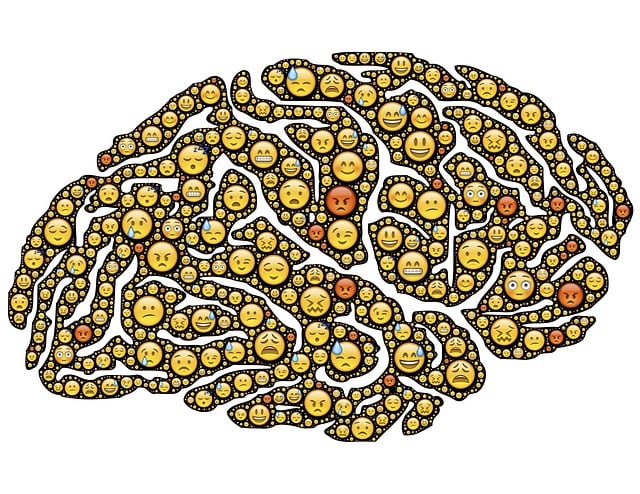Crisis intervention strategies tailored to Mandarin Chinese-speaking young adults must address cultural shifts, language barriers, and feelings of isolation that contribute to emotional distress and mental health issues. Effective approaches include trauma-informed services, emotion regulation techniques rooted in Eastern philosophy, and culturally competent therapy like Social Skills Training and group sessions mirroring community support systems valued in Chinese culture. Access to Mandarin-language resources and robust risk management planning are crucial for successful treatment.
In the context of mental health support, crisis intervention plays a pivotal role, especially among Mandarin Chinese speaking young adults. This article guides therapists and supportive services in navigating the unique challenges faced by this demographic. We explore essential strategies for understanding and addressing crises effectively. Key topics include recognizing signs and risk factors specific to young Mandarin speakers, mastering cultural-sensitive communication techniques, and leveraging appropriate resources. By implementing these practices, therapy for young adults speaking Mandarin Chinese can be more accessible and impactful during times of crisis.
- Understanding Crisis Intervention for Mandarin Chinese Speaking Young Adults
- Identifying Signs and Risk Factors Specific to This Population
- Effective Communication Strategies in Therapy Sessions
- Resources and Cultural Considerations for Supportive Services
Understanding Crisis Intervention for Mandarin Chinese Speaking Young Adults

Understanding Crisis Intervention for Mandarin Chinese Speaking Young Adults is a nuanced approach that acknowledges the unique cultural context and challenges faced by this demographic. Many young adults from Mandarin-speaking backgrounds may have experienced cultural shifts, language barriers, or feelings of isolation in their new environments, which can contribute to emotional distress and mental health issues. Therapy for young adults with these linguistic and cultural nuances requires sensitivity and a deep understanding of their experiences.
Crisis intervention strategies tailored to this population should incorporate Trauma Support Services that are culturally competent and accessible. Mental wellness coaching programs focused on development and emotional regulation techniques that resonate with Mandarin Chinese speaking young adults can be immensely beneficial. By integrating these services, professionals can effectively address the specific needs of this community, fostering a supportive environment that encourages open dialogue and healing.
Identifying Signs and Risk Factors Specific to This Population

In the context of crisis intervention for young adults speaking Mandarin Chinese, identifying signs and risk factors requires a nuanced approach. This population may present unique challenges due to cultural differences, language barriers, and specific developmental stages. Professionals must be vigilant for indicators such as severe depression, anxiety, or psychotic symptoms, which can manifest differently in individuals from diverse cultural backgrounds. For instance, some Mandarin-speaking young adults might express emotional distress through physical complaints rather than overt behavioral changes.
Furthermore, risk factors can include a history of trauma, abuse, or neglect; significant family or relationship problems; and limited access to cultural support systems. Social Skills Training, Resilience Building, and Inner Strength Development are crucial components of therapy for this demographic. These strategies aim to enhance coping mechanisms, foster a sense of belonging, and provide culturally sensitive tools to navigate crises effectively.
Effective Communication Strategies in Therapy Sessions

Effective communication strategies are pivotal in therapy sessions for young adults speaking Mandarin Chinese. Therapists should be proficient in both verbal and non-verbal communication techniques to ensure a comfortable and understanding environment for their clients. This involves clear, concise explanations of therapeutic concepts and active listening to validate the client’s feelings and experiences. Incorporating cultural sensitivity is essential; therapists should familiarize themselves with Mandarin cultural nuances to avoid misunderstandings and foster trust.
In addition to strong communication strategies, risk management planning for mental health professionals is crucial. When treating young adults with potentially complex issues, therapists must be prepared for unexpected reactions or disclosures. Trauma support services should be integrated into the therapeutic framework, ensuring that clients feel safe and supported throughout their journey. This not only enhances the effectiveness of therapy but also promotes positive outcomes for Mandarin-speaking young adults seeking mental health support.
Resources and Cultural Considerations for Supportive Services

When providing crisis intervention services to young adults who speak Mandarin Chinese, it’s crucial to consider both cultural and resource-related factors for effective support. In many Asian cultures, including those heavily influenced by Mandarin-speaking communities, expressing emotions openly may not be the norm. Therefore, therapists should foster an environment that encourages emotional regulation through techniques such as mindfulness meditation, a practice well-integrated into certain Eastern philosophical traditions. This approach can help clients develop healthy coping mechanisms while respecting cultural expectations for self-control.
Resources tailored to young adults from Mandarin-speaking backgrounds are essential. This includes the availability of therapy for young adults in Mandarin, ensuring accessible and culturally competent care. Additionally, incorporating stress reduction methods that resonate with these individuals’ cultural values can enhance engagement and outcomes. For instance, group therapy sessions centered around sharing experiences and offering mutual support can replicate successful community practices valued within many Chinese families.
Crisis intervention is a vital tool for supporting young adults speaking Mandarin Chinese, who often face unique challenges. By understanding specific risk factors and cultural nuances, therapists can implement effective communication strategies tailored to this population. Resources that cater to their needs and respect their cultural background are essential in providing supportive services. When applied appropriately, these strategies can significantly enhance the quality of therapy for young adults navigating crises, ensuring better outcomes and fostering resilience.














